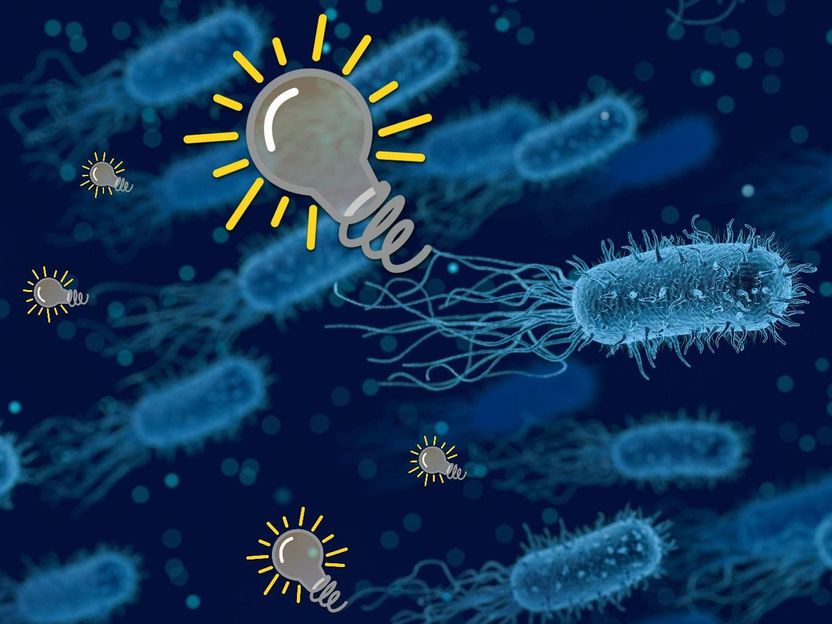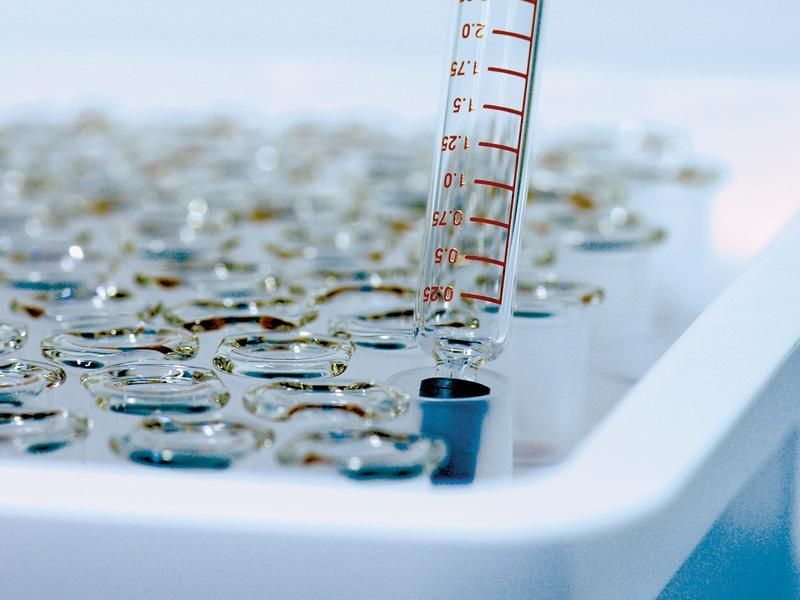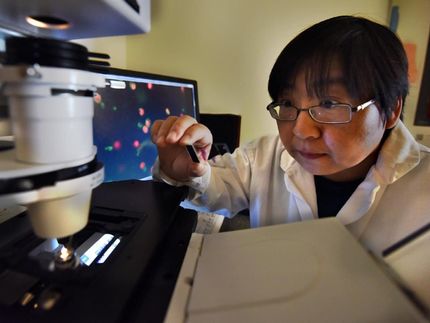Faster DNA analysis at room temperature
DNA microarrays are one of the most powerful tools in molecular biology today. The devices, which can be used to probe biological samples and detect particular genes or genetic sequences, are employed in everything from forensic analysis to disease detection to drug development.
Now Paul Li and colleagues at Simon Fraser University in Burnaby, Canada have combined DNA microarrays with microfluidic devices, which are used for the precise control of liquids at the nanoscale. In an upcoming issue of the journal Biomicrofluidics, which is published by the American Institute of Physics (AIP), Li and his colleagues describe how the first combined device can be used for probing and detecting DNA.
The key to Li's result: gold nanoparticles. Suspended in liquid and mixed with DNA, the nanometer-scale spheres of gold act as mini magnets that adhere to each of the DNA's twin strands. When the DNA is heated, the two strands separate, and the gold nanoparticles keep them apart, which allows the single strands to be probed with other pieces of DNA that are engineered to recognize particular sequences.
Li, whose work is funded by the Natural Sciences and Engineering Research Council of Canada, is applying for a patent for his technique. He sees a host of benefits from the combination of DNA microarrays and microfluidics.
"It's faster and requires a relatively small sample," he says, adding in his paper that "the whole procedure is accomplished at room temperature in an hour and apparatus for high temperature… is not required"
Other news from the department science

Get the life science industry in your inbox
By submitting this form you agree that LUMITOS AG will send you the newsletter(s) selected above by email. Your data will not be passed on to third parties. Your data will be stored and processed in accordance with our data protection regulations. LUMITOS may contact you by email for the purpose of advertising or market and opinion surveys. You can revoke your consent at any time without giving reasons to LUMITOS AG, Ernst-Augustin-Str. 2, 12489 Berlin, Germany or by e-mail at revoke@lumitos.com with effect for the future. In addition, each email contains a link to unsubscribe from the corresponding newsletter.
Most read news
More news from our other portals
Last viewed contents
Kidney

Bacteria generate electricity from methane - "We create a kind of battery with two terminals, where one of these is a biological terminal and the other one is a chemical terminal"
Gonadotropin-releasing_hormone
Turner_syndrome
List_of_ICD-9_codes_740-759:_Congenital_anomalies
Human_leukocyte_antigen
Translocation_(Wildlife_conservation)
Antineoplaston
Lactate_dehydrogenase






















































